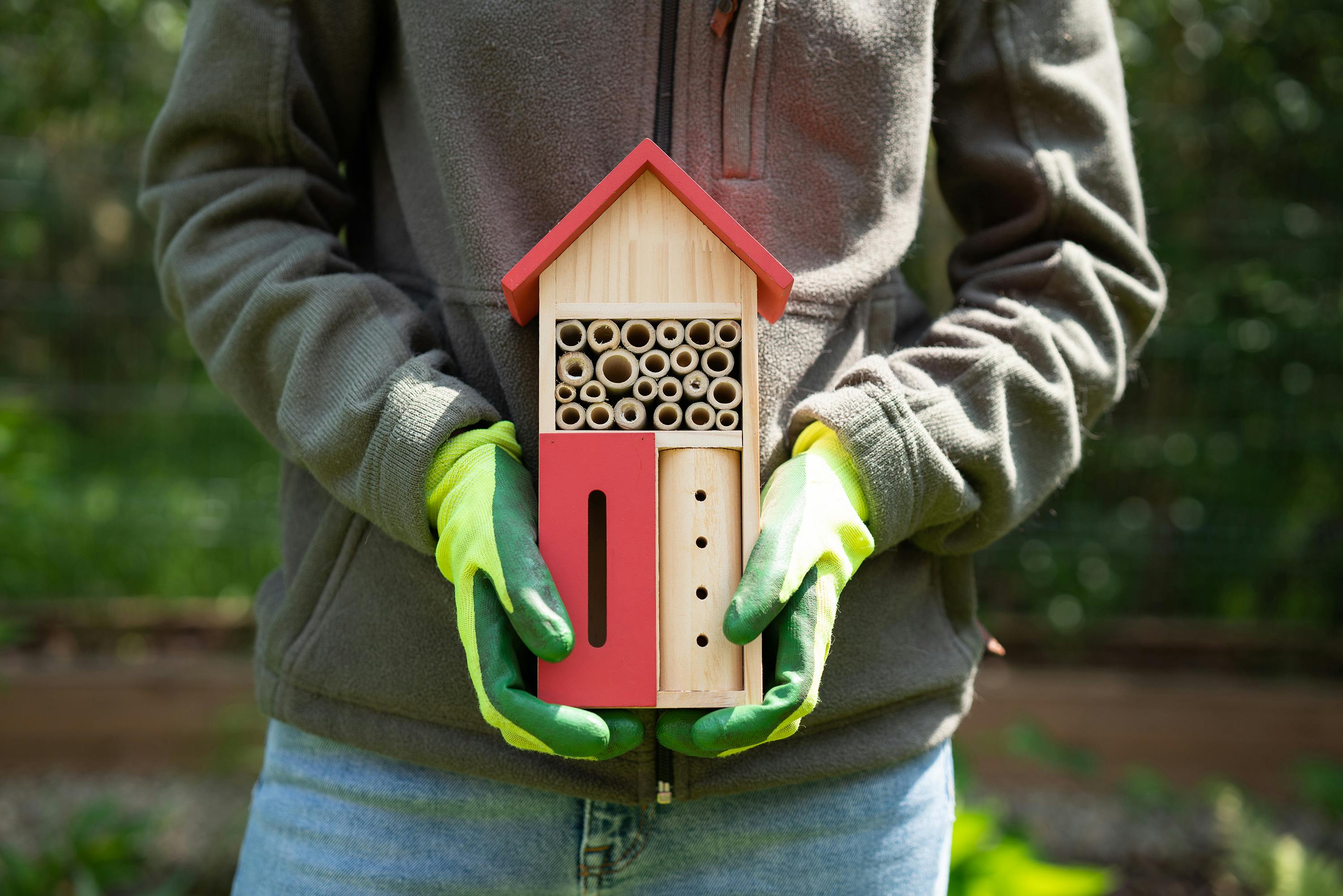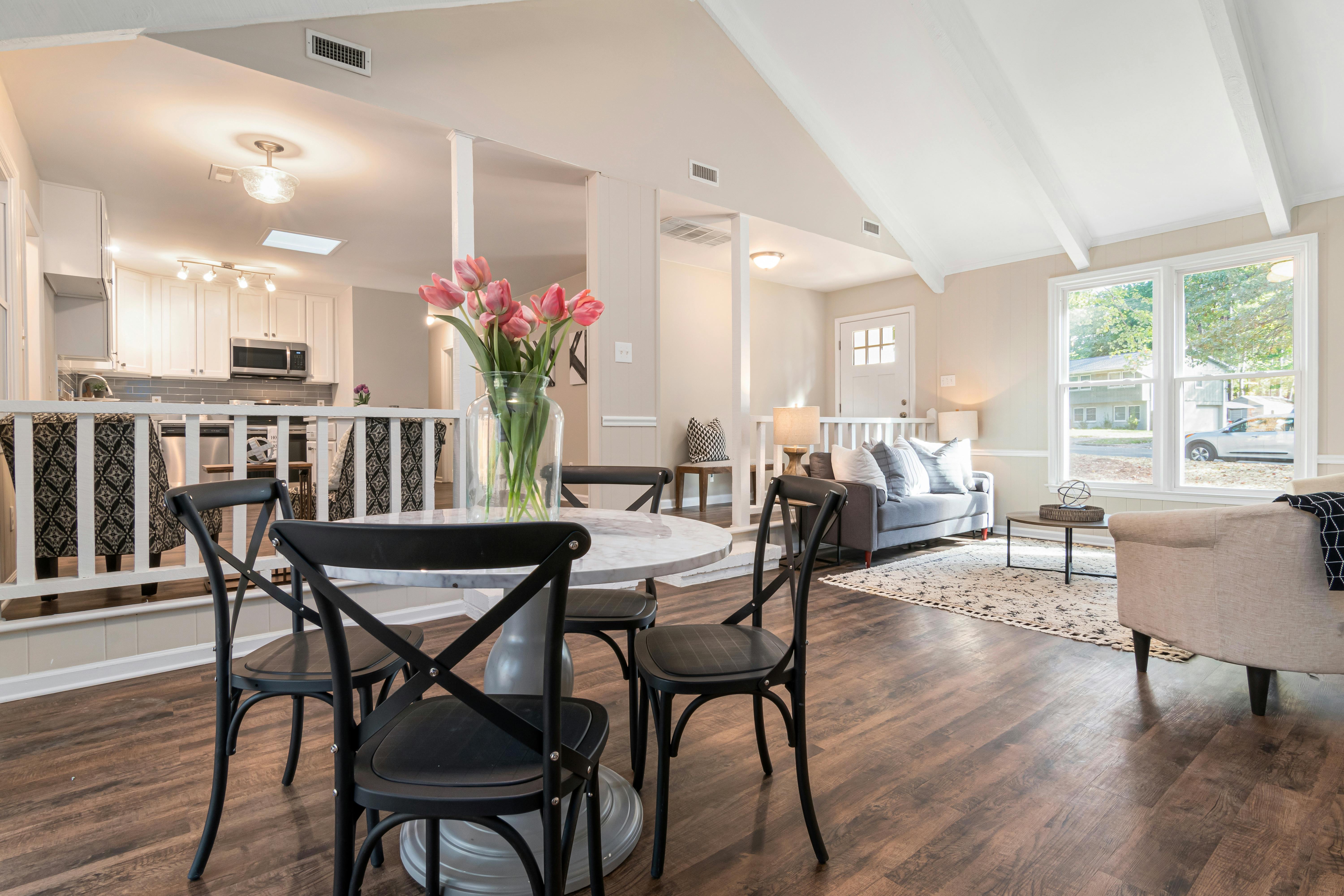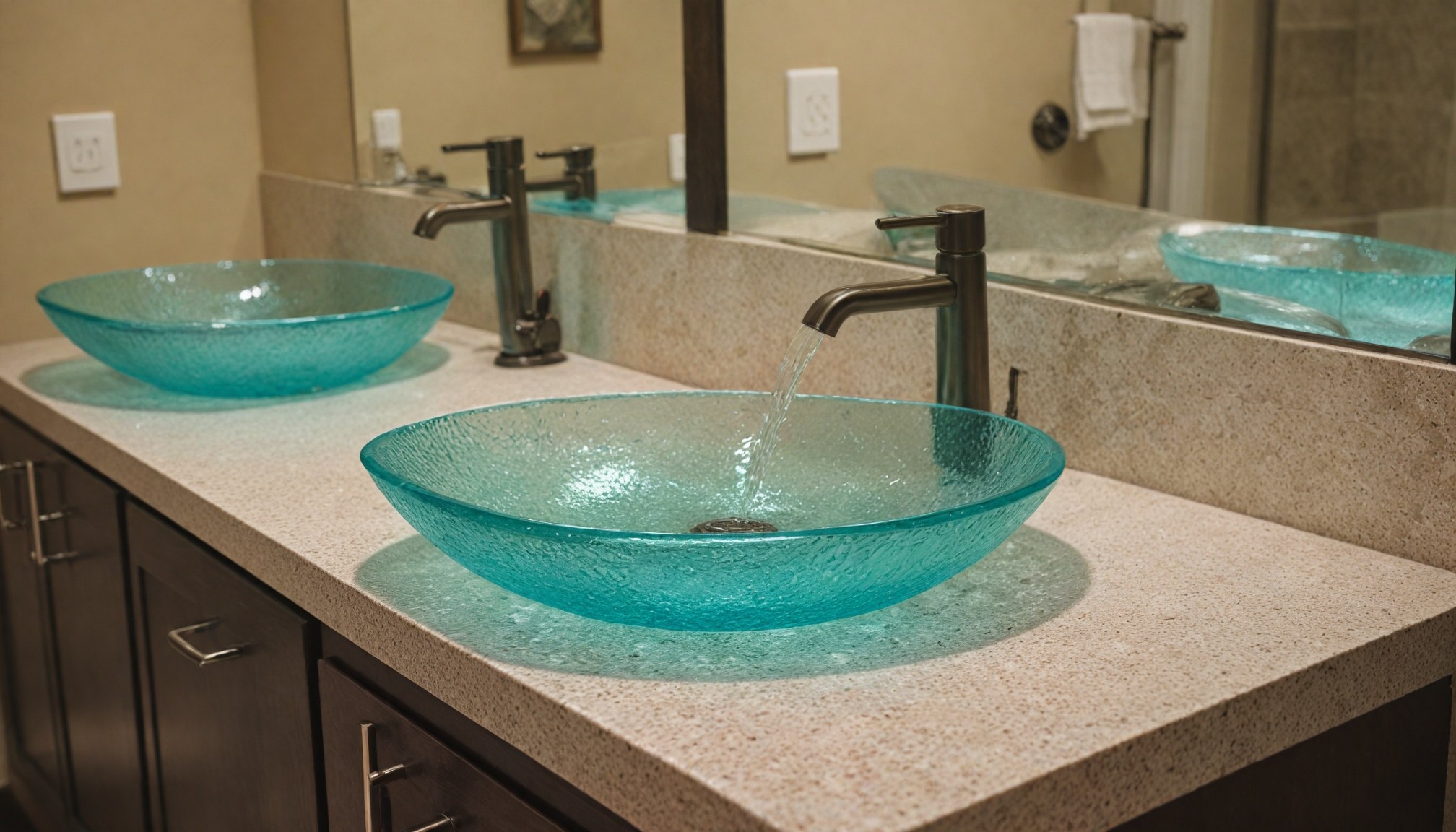
Building a Bee Hotel: Supporting Pollinators in Your Backyard
Creating a bee hotel is a fun and rewarding way to support pollinators in your backyard. Bees play a crucial role in our ecosystem, pollinating a significant portion of the plants we rely on for food. By providing a safe space for solitary bees to nest, you can help bolster their populations and encourage biodiversity in your garden. Here’s a guide on how to build a bee hotel and attract these essential pollinators to your yard.
1. Understanding Solitary Bees
Unlike honeybees, which live in large colonies, many bee species are solitary, meaning they build individual nests. Solitary bees, such as mason bees and leafcutter bees, are efficient pollinators and often more effective than honeybees. They typically seek out small cavities to lay their eggs, making bee hotels an ideal solution for their nesting needs.
2. Materials Needed
Building a bee hotel can be a simple project. Here are some materials you’ll need:
- Wooden Blocks: Untreated wood (like cedar or pine) is best, as it can create small tunnels for bees. Cut blocks into various sizes, ideally 6-8 inches wide and 4-6 inches tall.
- Drill with Drill Bits: Use various drill bit sizes (3/16 to 5/8 inch) to create holes in the wooden blocks. Different diameters attract different bee species.
- Bamboo or Hollow Stems: These can be cut into sections to provide additional nesting sites.
- Wooden Pallet or Frame: To create a sturdy structure to hold the bee hotel.
- Natural Materials: Pine cones, dried leaves, or straw can be added for additional texture and habitat.
3. Construction Steps
Step 1: Prepare the Wooden Blocks
Drill holes into the wooden blocks, making sure to space them at least 3/8 inch apart. Vary the hole sizes to attract different bee species.
Step 2: Assemble the Structure
Stack the blocks vertically or horizontally, securing them together with screws or nails. If using a wooden pallet, you can attach the blocks to the front.
Step 3: Add Natural Elements
Fill any gaps with pine cones, dried leaves, or straw to create a more inviting environment for bees.
Step 4: Weatherproofing
Consider placing a small roof or overhang on top to protect the nesting areas from rain and direct sunlight.
4. Placement of the Bee Hotel
Choosing the right location for your bee hotel is essential for attracting bees:
- Sunny Spot: Place the bee hotel in a sunny area that receives at least 6-8 hours of sunlight each day.
- Near Flowering Plants: Position it close to a garden or flower beds to provide food sources for the bees.
- Elevation: Mount the bee hotel at least 3 feet off the ground, facing south or southeast to keep it warm.
5. Maintaining Your Bee Hotel
To ensure your bee hotel remains a suitable habitat for bees, follow these maintenance tips:
- Inspect Regularly: Check for signs of occupancy and clean out any debris or old nesting materials at the end of the season.
- Replace Damaged Materials: If parts of the hotel become worn or damaged, replace them to maintain a safe environment for bees.
- Avoid Chemicals: Refrain from using pesticides and chemicals in your garden, as they can harm bees and other beneficial insects.
6. Engaging with the Community
Share your passion for pollinators by encouraging friends and neighbors to build their own bee hotels. Organize workshops or community events to raise awareness about the importance of supporting solitary bees and their role in our ecosystems.
Conclusion
Building a bee hotel is a simple yet impactful way to support pollinators in your backyard. By providing a safe nesting space for solitary bees, you can help enhance biodiversity and contribute to the health of your local environment. With a little effort and creativity, your garden can become a thriving haven for these essential pollinators. Start your bee hotel project today and enjoy the benefits of attracting these remarkable insects to your yard!
Recent articles from Eco Friendly

Home Ecology: Not a Trend, but a Necessity
Transforming your home into a safe space for health is achievable with these practical tips.
Eliminate Forever:
Melamine Tableware:
Melamine dishes are lig...

The Most Beneficial Essential Oils: For Home, Cooking, and Healing
Aromatherapy with Essential Oils
Essential oils are a versatile way to promote health and well-being. Their aromatic compounds can calm the mind, improve sleep, and boos...

Bathroom Upgrade: Using Recycled Glass Countertops
Introduction: Recycled glass countertops are an eco-friendly and stylish choice for bathroom renovations. By opting for these sustainable surfaces, you can enhance the aesthetic...